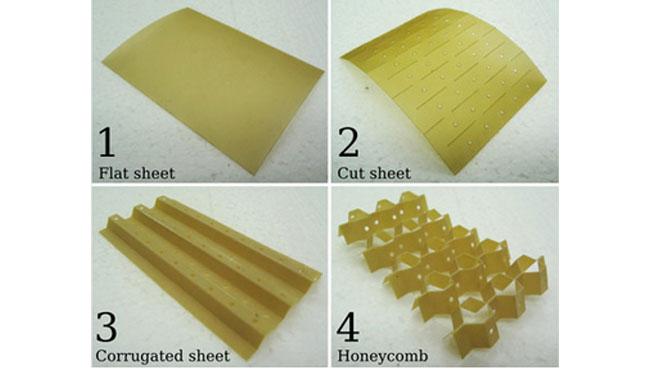London: Engineers from the University of Bristol in Britain have developed a new shape-changing metamaterial using Kirigami — an ancient Japanese art of cutting and folding paper to obtain 3D shapes.
Metamaterials are materials engineered to produce properties that do not occur naturally and they are used to make artificial electromagnetic and vibration absorbers and high-performance sensors.
The research, developed within a Ph.D. programme run by the University’s EPSRC Centre for Doctoral Training in Advanced Composites for Innovation and Science, was published today in Scientific Reports.
These metamaterials change shape seamlessly, exhibit large variations in mechanical performance with small geometry changes and can be adapted to modify theirs configuration by using mainstream actuation mechanisms.
“Mechanical metamaterials exhibit unusual properties through the shape and deformation of their engineered subunits. Our research presents a new investigation of the kinematics of a family of cellular metamaterials based on Kirigami design principles,” Fabrizio Scarpa, Professor of Smart Materials and Structures in the Department of Aerospace Engineering and ACCIS, said.
“This technique allows us to create cellular structures with engineered cuts and folds that produce large shape and volume changes and with extremely directional, tune-able mechanical properties,” Scarpa added.
The Kirigami metamaterial can also be produced using off-the-shelf thermoplastic or thermoset composite materials. Different sensing and electronics systems can be embedded to obtain a fully integrated smart shape-changing structure.
“By combining analytical models and numerical simulations, we have demonstrated how these Kirigami cellular metamaterials can change their deformation characteristics,” Robin Neville, PhD student, added.
“We have also shown the potential of using these classes of mechanical metamaterials for shape change applications like morphing structures,” Neville noted.
IANS

